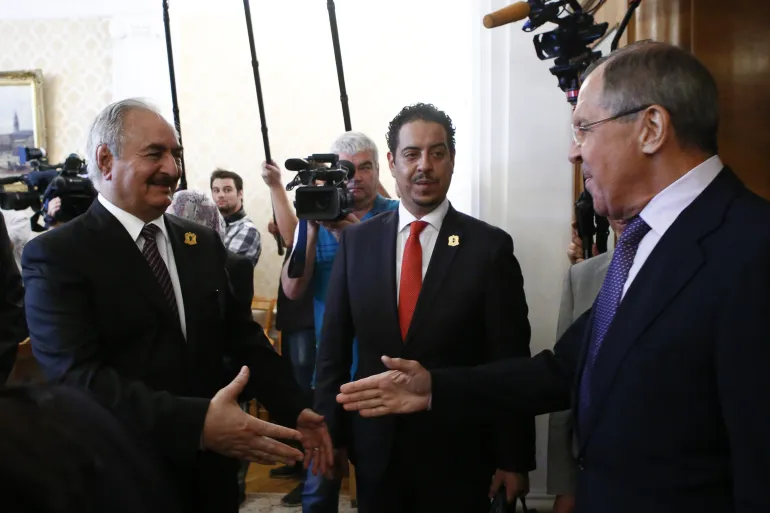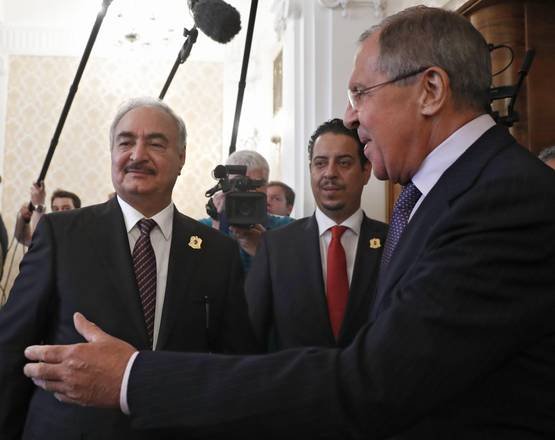Under the leadership of a new general, Russia’s Wagner Group is making significant inroads into Libya, marking a pivotal shift in the country’s ongoing conflict and highlighting Russia’s strategic ambitions in the region. This blog post explores the implications of Wagner’s deepening involvement in Libya, the motivations behind Russia’s actions, and the potential consequences for regional stability and international relations.
Wagner Group’s Growing Presence in Libya
A New General at the Helm
The appointment of a new general to oversee Wagner’s operations. Which held in Libya signifies a strategic recalibration of Russia’s involvement in the country. This move underscores the importance Moscow places on its activities in Libya. Aiming to strengthen its influence and assert its interests more forcefully.

Expanding Operations
Wagner’s presence in Libya is not new, but recent developments indicate a significant expansion of their activities. From providing military support to local factions to securing strategic locations and resources. Wagner’s operations are becoming increasingly integral to the dynamics of the Libyan conflict.
Russia’s Strategic Interests in Libya
A Foothold in the Mediterranean
Russia’s involvement in Libya, facilitated by Wagner, aligns with its broader strategic goal of expanding. Its influence in the Mediterranean region. Libya’s strategic location and oil reserves make it a key piece in Russia’s geopolitical puzzle. Offering Moscow a valuable foothold at the crossroads of Africa and Europe.
Supporting Allies and Expanding Influence
By backing certain factions in Libya’s fragmented political landscape. Russia aims to install a friendly regime that can serve its interests. Wagner’s military support is instrumental in this endeavor, helping to tip the balance of power in favor of Moscow’s allies.
Implications for Regional Stability
Escalating Conflict
Wagner’s deeper involvement in Libya risks escalating the conflict, potentially drawing in other regional and international actors. The increased militarization and external support for rival factions threaten to prolong the instability and suffering of the Libyan people.
Shifting Alliances
As Russia asserts its presence in Libya, other countries with vested interests in the region are reevaluating their strategies. This could lead to shifting alliances and a realignment of forces, further complicating the already complex regional dynamics.
International Response and Future Prospects
Concerns from the International Community
The international community is closely watching Wagner’s activities in Libya, with many expressing concern over Russia’s expanding influence. There are calls for increased diplomatic efforts to resolve the Libyan conflict and curb external military involvement.
The Path to Peace
Achieving peace in Libya requires a concerted effort from all parties involved, including external actors like Russia. Diplomatic solutions that address the root causes of the conflict. And ensure the sovereignty and unity of Libya are essential for lasting stability.
Under new leadership, Russia’s Wagner Group is deepening its involvement in Libya. Reflecting Moscow’s strategic ambitions in the region and raising questions about the future of Libyan sovereignty and regional stability.
As the situation evolves, the actions of the Wagner Group and Russia’s broader strategy in Libya. And it will continue to have significant implications for the country, the Mediterranean region, and beyond. The international community’s role in promoting peace and stability in Libya remains crucial. And it does the need for a nuanced understanding of the motivations and consequences of external involvement in the conflict.
Inspired by Al Jazeera News and read more articles here or read previous articles here.
